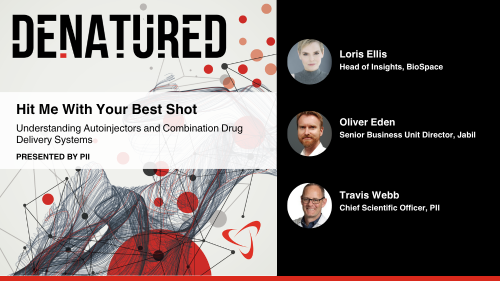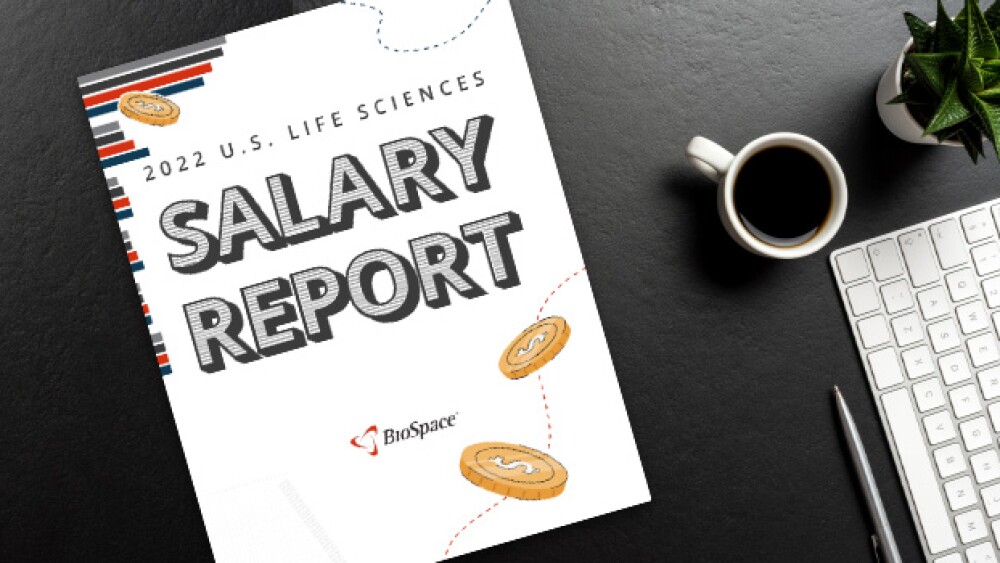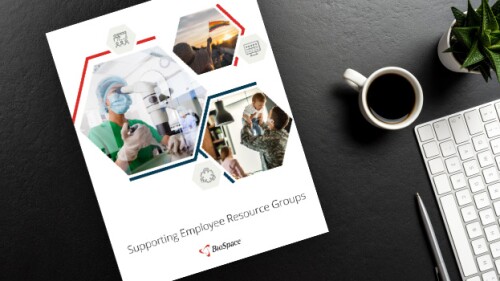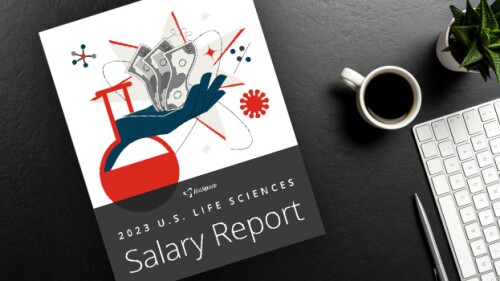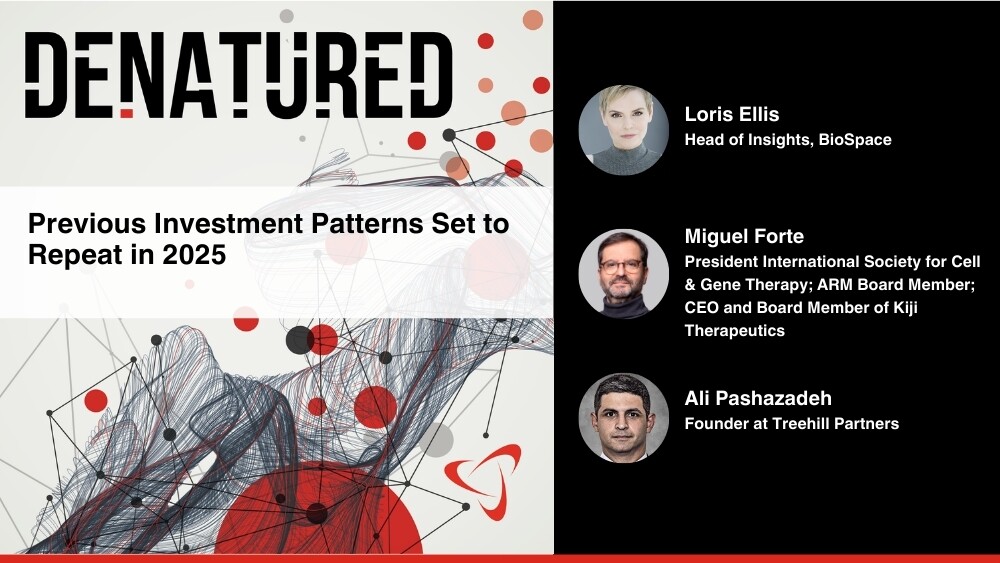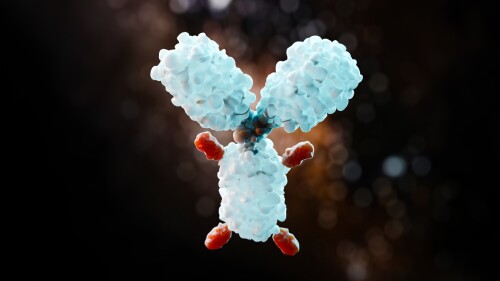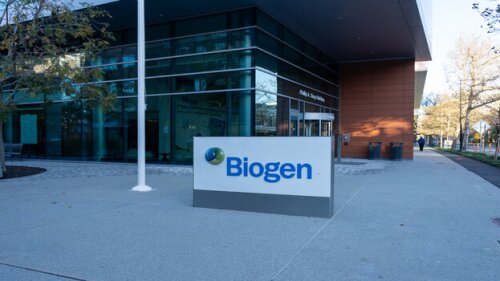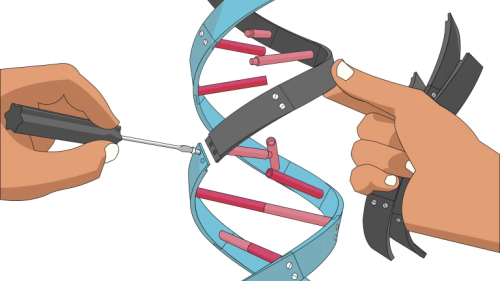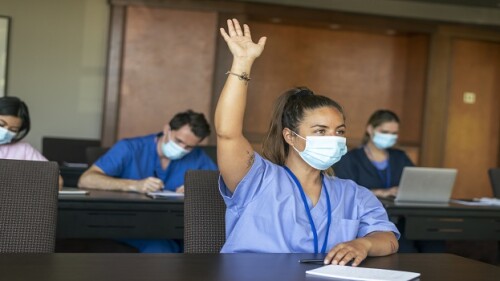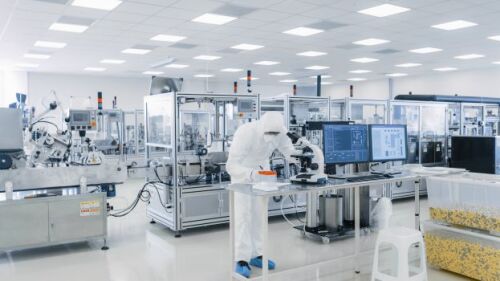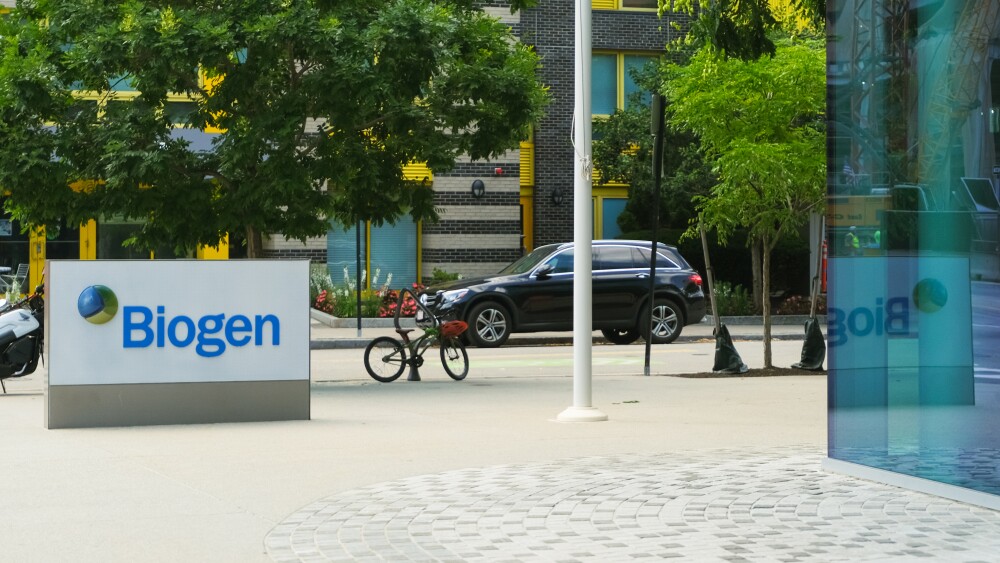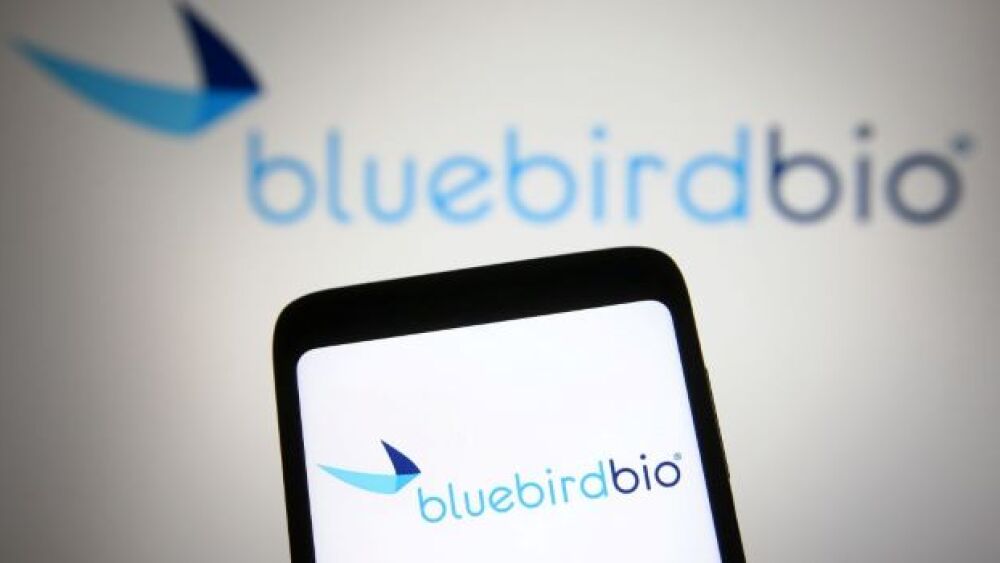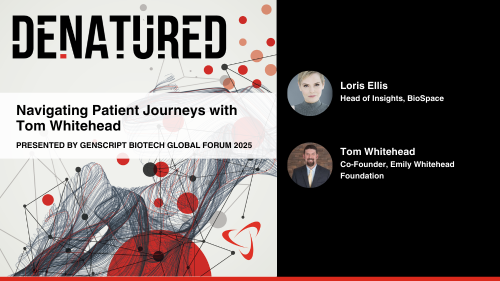Expanded exemptions for orphan drugs could mean prolonged protections for top-selling drugs like Merck’s Keytruda, which was initially approved under this designation in 2014.
Findings from the Phase III VESALIUS-CV study reinforce the cholesterol-lowering benefit of Repatha in high-risk patients without prior cardiovascular disease, for which the drug was approved in August 2024.
Regulatory documents show how 89bio’s board pushed Roche hard for a deal valued at $20 per share in upfront and milestone payments.
Looking for a biopharma job in Boston? Check out the BioSpace list of six companies hiring life sciences professionals like you.
In this episode presented by PII, BioSpace’s head of insights discusses with guests Oliver Eden and Travis Webb how autoinjectors offer opportunities to improve delivery systems, patient compliance and clinical trial processes.
Both Halozyme and Elektrofi have partnered with several Big Pharma companies to provide drug delivery technologies.
FEATURED STORIES
The medium-sized biopharma is showing off new results from dordaviprone and Zepzelca, both of which were acquired through Jazz Pharmaceuticals’ dealmaking over the last five years.
A February executive order on pharmaceutical price transparency does nothing to change the incentives that keep costs opaque. But drug companies and other stakeholders would reap the benefits of such disclosures.
Nearly two years in with Zurzuvae, Biogen tackles an ‘all of the above market’ to find patients and battle stigma in postpartum depression.
R&D spending across the global pharmaceutical sector climbed 1.5% in 2024, according to unreleased data from Evaluate Pharma.
As the World Health Organization initiates a new agreement for coordinating global responses to future pandemics, the future of vaccine development in the U.S. faces growing challenges, including waning funding and regulatory changes, that threaten next-gen COVID-19 vaccine candidates and pandemic preparedness more broadly.
Vocal skeptics of COVID-19 vaccinations gave mRNA a bad name and government funding for mRNA research is now being cut. On the flip side, at least one CEO said the pandemic also provided “elevated acceleration” for the field, which also holds promise in therapeutics for cancer and rare diseases.
FROM BIOSPACE INSIGHTS
BioSpace’s 2022 Salary Report explores the average salaries and salary trends of life sciences professionals. Though movement in the labor market slowed during the pandemic, recovery has been swift and employers are once again having to cope with a highly competitive talent market.
LATEST PODCASTS
The Novo-Catalent deal now moving ahead highlights unprecedented investment in manufacturing, while also standing out as an exception to the unspoken rule of keeping M&As to less than $5 billion this year.
GSK, Gilead and Arcellx, Vertex and more present new data at the American Society of Hematology annual meeting just as sickle cell therapies Casgevy and Lyfgenia have a new outcomes-based payment model; Eli Lilly and Novo Nordisk pump new funds into manufacturing; and AbbVie makes a Cerevel comeback while uniQure clears a path toward accelerated approval in Huntington’s disease.
In this episode of Denatured, BioSpace’s Head of Insights Lori Ellis, Miguel Forte and Ali Pashazadeh discuss how a slow and steady pace is a continuation of the pattern we have seen throughout the last three years.
Job Trends
The SURVEYOR Study met its primary endpoint demonstrating a statistically significant difference as measured by the HD-Cognitive Assessment Battery ( HD-CAB) composite score at baseline between healthy participants and participants with Huntington’s Disease (HD) prior to any treatment with dalzanemdor (SAGE-718) or placebo; further underscoring the cognitive impact of HD For participants with HD that received dalzanemdor or placebo, dalzanemdor was generally well-tolerated with no new
Subscribe to Genepool
Subscribe to BioSpace’s flagship publication including top headlines, special editions and life sciences’ most important breaking news
SPECIAL EDITIONS
In this deep dive, BioSpace investigates China’s rise as a biotech powerhouse.
In this deep dive, BioSpace explores the next big thing in obesity.
BioSpace did a deep dive into biopharma female executives who navigated difficult markets to lead their companies to high-value exits.
DEALS
-
J.P. Morgan kicked off with a flurry of deals, with Eli Lilly, GSK and Gilead all announcing deals potentially worth more than $1 billion while J&J committed $14.6 billion to buy Intra-Cellular. These moves have reinvigorated sentiment across the biopharma industry.
-
In exchange for its investigational gene therapies, Regenxbio will receive $110 million upfront and up to $700 million in milestones. After hitting an all-time low of $6.95 at close of business yesterday, the stock surged on the news by nearly 20% before markets opened Tuesday.
-
The multi-billion deal, in which Eli Lilly will acquire Scorpion Therapeutics’ STX-478 program, is a shot in the arm for PI3K treatments, which have had a mixed history over the past few years.
-
On the heels of an FDA approval for its monoclonal antibody Bizengri, Merus will generate three novel cancer-targeting antibodies that it will pass over to Biohaven to link into antibody drug-conjugates.
-
Biogen’s proposed acquisition comes after two difficult years of regulatory and clinical challenges, during which shares of Sage Therapeutics have fallen by more than 90%.
WEIGHT LOSS
-
As obesity drug developers compete for the highest weight-loss efficacy, experts contend that overall health outcomes—evidenced by successful studies in therapeutic areas like cardiovascular and sleep apnea—may prove a greater market advantage.
-
The Maryland-based biopharma joins Eli Lilly and Novo Nordisk in trialing a GLP-1 agonist for alcohol- and liver-related conditions.
-
Roche and Zealand plan to study petrelintide as a monotherapy and in combination with CT-388, a dual agonist of the GLP-1 and GIP receptors that Roche picked up in its recent acquisition of Carmot Therapeutics.
-
BioSpace remembers COVID-19 five years after the pandemic was declared, Novo Nordisk’s CagriSema again misses expectations as the company joins a lawsuit filed by drug compounders against the FDA, Viking secures ample supply of its investigational obesity medication, J&J strikes out in depression, and Makary and Bhattacharya near confirmation.
-
Analysts acknowledged the long-term manufacturing deal could dull Viking’s takeout prospects but hailed it as a smart move to ensure supply.
POLICY
-
The rehired staff, who number around 460, work with the CDC’s viral disease prevention efforts and sexual health testing labs, among others. The reinstatements are a ray of light in an acrimonious week that also saw protests and the complete overhaul of the agency’s vaccine advisory committee.
-
The eight new committee members replace the 17 Kennedy removed earlier this week. In “repopulating” the committee, the HHS Secretary fulfilled the fears of some analysts, naming scientists who appear to reflect his anti-vaccine views.
-
The American Medical Association is also urging an “immediate reversal” of the HHS Secretary’s decision to oust all 17 members of the CDC’s vaccine advisory board.
-
Gene therapies have ridden investor mania to huge valuations but commercialization challenges have pushed market caps to the floor. At a roundtable last week, FDA leaders promised faster approvals and broad support to the industry.
-
Robert F. Kennedy Jr.’s removal of all remaining members of the CDC’s Advisory Committee on Immunization Practices raises questions about the upcoming meeting later this month. Analysts fear the committee could be more sympathetic to the HHS Secretary’s anti-vax viewpoints.
In the wake of a global pandemic and economic downturn, the hiring market has turned on its head. BioSpace spoke with PharmaLogics Recruiting to learn how employers can stay competitive.
Beginning the job search is the first step toward starting your career after graduating with a Bachelor’s Degree in Chemistry. To help, we’ve compiled seven of the most common chemistry jobs for new grads.
BioSpace spoke with Saundra Pelletier, CEO of Evofem Biosciences, to discuss the realities of being a woman in the life sciences and find out the career moves that propelled her forward.
Becoming a chemist in the biopharma industry takes hard work, dedication and a willingness to continuously learn. Here’s what you need to know to become a biochemist.
As automation ramps up in the coming years, many jobs will be lost to machines. Here are a few life science sectors that are expected to maintain steady growth in the coming years.
Landing your first internship can be a major milestone in your career journey. Here’s what you can do to set yourself up for success and make the most of your life science internship.
HOTBEDS
REPORTS
In this Employment Outlook report, BioSpace explores current workforce sentiment, job activity trends and the prospective job and hiring outlook for 2025, particularly as it compares to the previous year.
BioSpace’s third report on diversity, equity, inclusion and belonging in life sciences examines dramatic shifts in attitude around diversity initiatives.
CANCER
-
According to Tempest, its options include a partnership or licensing deal, as well as a merger or an acquisition.
-
The FDA approved the use of Opdivo with Yervoy in front-line colorectal cancer, while a Manhattan court junked a class action complaint over the blood cancer drug Pomalyst.
-
Wegovy and Zepbound are just the latest drug dyads to face-off in the competitive pharma market, continuing a legacy of rivalry that includes blockbuster drugs Keytruda, Humira and Eliquis.
-
Stifel analysts were bullish on the data, which showed a 16.5% drop in body-mass index among patients with damage to the hypothalamus taking Rhythm Pharmaceuticals’ Imcivree.
-
An independent data monitoring board found that BeiGene’s ociperlimab was unlikely to significantly boost overall survival in patients with untreated NSCLC.
NEUROSCIENCE
-
The licensing deal follows years of controversy for Cassava, as well as the high-profile late-stage failure of its Alzheimer’s disease drug simufilam.
-
ITF, IntraBio and Orchard are among the companies that have won FDA nods in the past year for Duchenne muscular dystrophy, Niemann-Pick disease type C, metachromatic leukodystrophy and more.
-
Emalex is gearing up for a New Drug Application for ecopipam in Tourette syndrome later this year.
-
BridGene strikes another partnership with Takeda as the latter company continues its dealmaking streak, following high-ticket agreements with Keros Therapeutics, AC Immune and Degron Therapeutics in the past nine months.
-
The treatment, called DB-OTO, is one of several early-stage gene therapies being developed to treat relatively straight-forward causes of genetic deafness.
CELL AND GENE THERAPY
-
The proposed acquisition by global investment firms Carlyle and SK Capital Partners could net shareholders $3 per share plus potential CVR dollars and provide bluebird bio with primary capital to expand the commercial reach of its gene therapies.
-
The move comes weeks after Pfizer terminated its partnership with Sangamo Therapeutics for another hemophilia gene therapy.
-
The Philadelphia market has gained recognition not only for its cell and gene therapy sector but also its real estate scene and talent pool. Vittoria Biotherapeutics, Interius BioTherapeutics and Chamber of Commerce for Greater Philadelphia executives share why the area is a life sciences hot spot.
-
Biopharma doubles down on immunology and inflammation as companies target new pathways and seek to improve on current options in inflammatory bowel disease, atopic dermatitis, myasthenia gravis and more.
-
In this episode, presented by the Genscript Biotech Global Forum 2025, BioSpace’s Head of Insights Lori Ellis and Tom Whitehead continue to discuss the patient and caregiver experience, where Tom gives his insights to the future of CGTs.








